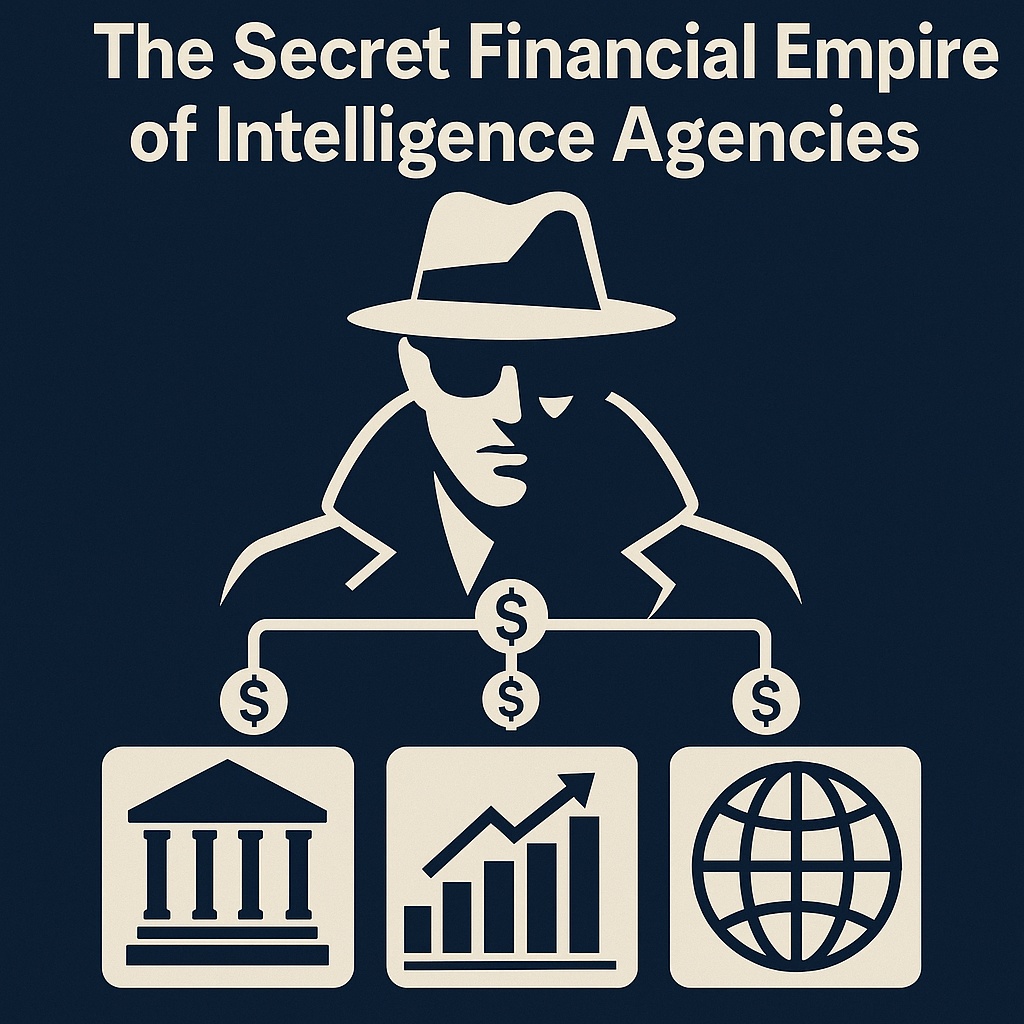Politicians claim to rule nations. Yet many of their decisions begin somewhere else. The real power lies behind the curtains, in rooms where no one votes and no one watches. Intelligence agencies form a global empire that never runs for office but quietly dictates what elected leaders can and cannot do. Their reach goes far beyond security. It touches finance, media, and even the stock market.
From battlefield to bureaucracy
Modern intelligence agencies were born from war. During World War II, the OSS, MI6, and Soviet NKVD were created to manage sabotage, espionage, and propaganda. When the war ended, none of them disappeared. They reinvented themselves as permanent institutions, defending not only the nation but also the new order that followed. The Cold War cemented their power. Secret operations replaced open conflict. They learned that influence, not victory, was what mattered most.
The quiet merger with money
As Cold War borders stabilized, intelligence agencies shifted their focus. They began to understand that financial influence could achieve more than armies. Instead of conquering territory, they learned to manipulate markets. Banks became the new battlegrounds. Major agencies, especially the CIA, MI6, and later Mossad, created front companies that owned stocks in private banks. Through these shares, they gained access to global financial flows. They could move money for covert operations without oversight. They could trace other states’ financial weaknesses.
These holdings were not accidental. They created a parallel financial world hidden behind layers of shell firms. Intelligence funds quietly entered investment banks, offshore accounts, and even international development projects. Each share meant information, and information meant leverage. The agencies became silent shareholders in the institutions that move the world’s capital.
Banks as silent allies
Banks and intelligence agencies share the same logic: secrecy. One hides transactions, the other hides intentions. Together they form a network of mutual benefit. Banks provide discreet transfers, access to corporate accounts, and protection from political scrutiny. In return, agencies supply information on rivals, foreign markets, and upcoming sanctions. This cooperation created a financial intelligence complex that operates without borders or accountability.
Owning stocks in major banks gave intelligence agencies something unprecedented—profit. Their covert money now generated dividends. Covert funds became self-financing systems. Black operations no longer needed parliamentary approval or government budgets. They could be funded by “private” returns. Some operations even used insider financial knowledge to manipulate currency markets or short specific industries before orchestrated crises. The line between national security and organized crime blurred.
The global expansion
After the Cold War, the empire of intelligence did not shrink. It globalized. Former adversaries built cooperation networks under the pretext of counterterrorism. The Five Eyes alliance between the U.S., U.K., Canada, Australia, and New Zealand became a worldwide surveillance entity. Through financial monitoring systems like SWIFT, they gained access to nearly every international transaction. Data collection and market intelligence merged. Economic espionage turned into standard policy.
Meanwhile, private intelligence companies emerged—run by former agents, funded by private capital, and occasionally still connected to state agencies. Many of these firms also hold shares in financial institutions. They conduct cyber operations, manipulate media narratives, and provide “risk assessments” that shape global investment. The intelligence empire became not only invisible but also profitable.
The digital empire
The rise of Big Tech gave intelligence agencies new tools. Surveillance no longer required spies—it needed algorithms. The NSA’s access to global internet traffic made the agency one of the largest data brokers on Earth. Data became currency. With enough of it, one can predict markets, foresee revolutions, and even trigger them. Tech companies, many with intelligence ties, became part of this machinery.
Agencies invest indirectly through venture funds that hold shares in data companies, payment processors, and cybersecurity firms. They no longer need direct control. Ownership through subsidiaries guarantees influence without exposure. The same banks that host their capital now host their digital infrastructure. What began as espionage turned into automated economic supervision.
Democracy as theatre
Citizens vote. Agencies decide. That is the real balance of modern democracy. Politicians come and go, but the intelligence bureaucracy remains. Presidents and prime ministers rely on briefings that come from those who know more—and control what is known. In many countries, the agency can pressure leaders by revealing or fabricating scandals. They can destabilize opponents or influence media coverage. Every major democracy has its hidden veto power—the intelligence community itself.
The public rarely notices how deep the integration runs. A banker sits on the advisory board of a national intelligence council. A former spy becomes a financial consultant. A hedge fund quietly employs ex-analysts from multiple agencies. Everyone benefits. Everyone stays silent.
The empire that feeds itself
Secrecy is expensive. It must pay for itself. Intelligence agencies use their investments to maintain financial independence. Their profits fund surveillance projects, black operations, and propaganda networks. Each new crisis justifies larger budgets and more secrecy. The structure sustains itself through fear, profit, and classified necessity. Oversight committees exist, but their access is limited and their understanding minimal. The invisible empire answers to no one.
The future of hidden power
The next step is full integration. Artificial intelligence and predictive algorithms will allow intelligence agencies to model human behavior, markets, and politics in real time. They will no longer react—they will anticipate. Combined with bank data and stock ownership, this means total supervision of economic life. The illusion of free markets will survive, but behind every price and policy will stand a hand that never reveals itself.
Conclusion
The invisible empire of intelligence agencies has moved far beyond espionage. It owns shares in the world’s banks, influences economies, and directs political evolution from the shadows. The empire does not need colonies or armies. It needs data, fear, and access to money. When intelligence agencies become investors, the line between power and profit disappears.
The final truth is unsettling. Governments serve citizens. Intelligence empires serve themselves.

Leave a Reply